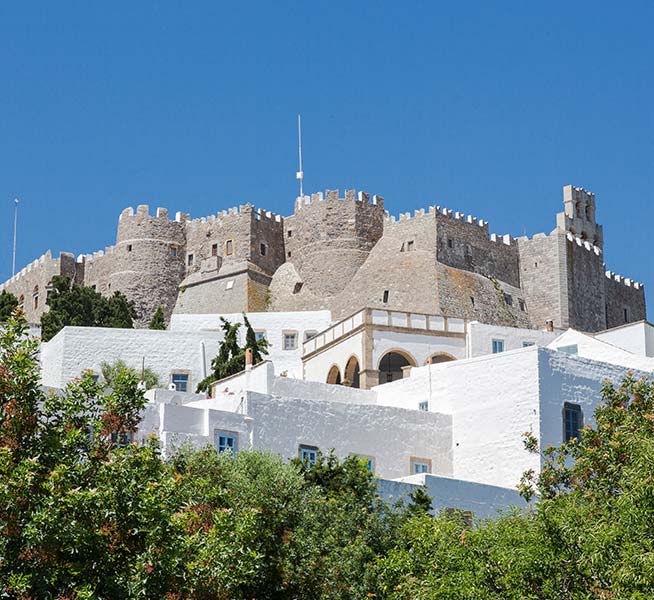Patmos
Patmos is a significant Christian site, known as the place where the Apostle John received the vision that led to the writing of the Book of Revelation. Exiled to the island in 95 AD, John experienced vivid visions in the Cave of the Apocalypse, which is now a major pilgrimage destination. The island also houses the Monastery of Saint John the Theologian, a UNESCO World Heritage site, attracting visitors with its religious relics and historical importance.
Beyond its spiritual significance, Patmos is famous for its natural beauty, featuring dramatic cliffs, coastlines, and serene beaches. The island is dotted with traditional villages, museums, and historic mansions, and is also known for its unique wine production. Historically, Patmos has served as a refuge for exiled political and religious figures and later became a sanctuary for Christian monks during the Byzantine period. After centuries under Ottoman rule, Patmos became part of Greece in 1948. Today, it remains a popular destination for both its religious importance and captivating beauty.



